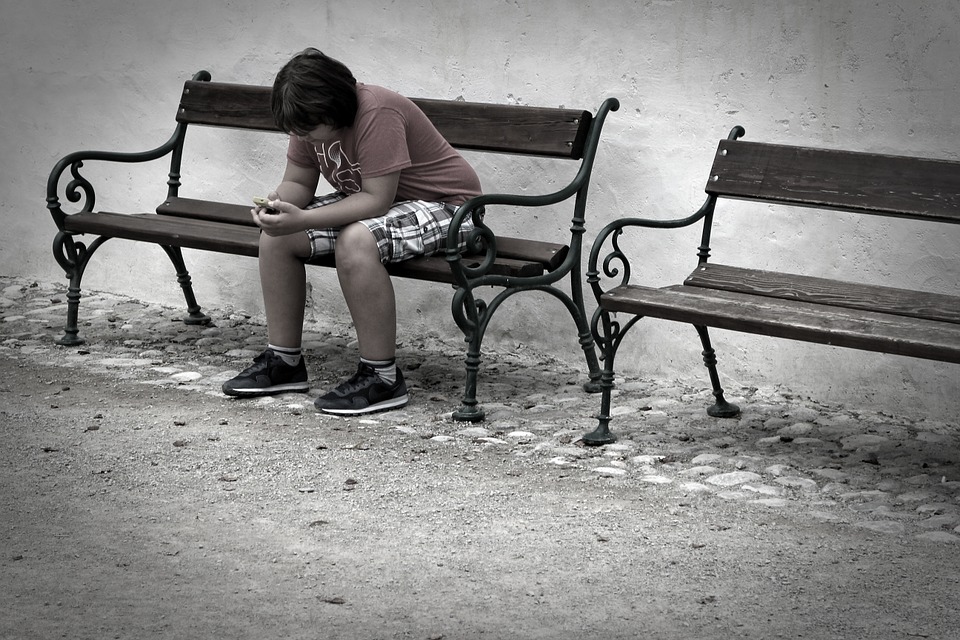Survivor Stories: ‘How Addiction Recovery Helped Me Find My Life’s Passion’: by Cecilia Johnson8/25/2016  Photo from Pixabay Photo from Pixabay Through my conversations with individuals in recovery, I learned that an addict’s recovery journey is a long and arduous path. To say they have their share of dark days and endure experiences they would never wish upon anyone is an understatement. But the work is worth it, because getting sober paves the way for countless rewards. And as these stories show, one of the amazing things that happens for some survivors is discovering their life’s calling. These warriors inspire me to believe that going through a hard time — be it addiction, depression, loss, or something else that rattles our existence — often paves the way for better things. Wendy works for the organization that helped save her life Wendy is a proud graduate of Turning Point Recovery, Addiction Campuses’ Mississippi facility. And now, nearly one year sober, she works as a recovery coach for people who are just beginning their road to recovery. She’s honored to be able to share her experiences with the people she coaches — people with whom she has much in common, and people who hold a lot of the same doubts and fears that she did when she first entered the program. “A lot of people have trouble when they don’t level with others. It was really hard for me to level up when I first got there, so I understand that,” she said. “When I pick them up from the airport, I tell them I went through the program, and sometimes I feel like that gives them some hope. I’m not just someone they hired — I actually did the program, and the skills I learned while I was there help me on a daily basis not just to stay sober, but to cope with daily life.” She couldn’t have planned on working for this organization when she entered treatment, but now she can’t imagine doing anything else. “I love working there. I’m very grateful,” she told me. John writes about his journey to inspire others John also now works for the organization that helped him find his path to recovery, and it’s a role that means a lot to him. “I can actually say that I know how this program works because I’ve been through it,” he said. And while his peers may not have first-hand experience in what it’s like to graduate from the program, they’re just as passionate as John about helping people be successful in their sobriety. “We feel responsible to save as many lives as we can each month,” John said. In addition to helping those whose shoes he once walked in find the help they need, he and his wife write about their experiences through John’s recovery on their blog, Mabry Living. Life post-treatment is challenging — not just for addicts, but for their loved ones, as well. John and his wife wanted to be able to share their journey to inspire and encourage others who may be on similar paths. “We want people to know it’s OK to not be OK after treatment. It can still be a grind,” he admitted. “There’s that impression that you’re cured when you get out of treatment, but the real work begins when you leave.” Zach is studying to be a substance abuse counselor Zach recently celebrated the milestone of one year of sobriety — and now he can’t picture doing anything else with his life than helping others do the same. He said that his final days in treatment inspired him to help others in ways he never thought he could. “Those last few weeks I wasn’t there just to be there — I was helping other people grow,” he said. “We had AA meetings every night and helped people through the 12 steps. To have the skills I learned in treatment with my newfound mindset from AA — just kind of seeing things in a different light — really opened me up to be more accepting of things, to not freak out over the little stuff and react the right way.” Now, he’s pursuing his degree to be a substance abuse counselor. But he’s sure he wouldn’t have set his sights on this path had he never sought sobriety for himself. “I always talked about going to school. I decided during treatment that I was going to go, and I wasn’t going to let anything hold me back,” he remembered. “I knew this is what I wanted to go to school for. I loved seeing people’s faces light up while I was helping them in treatment, and I liked being able to understand what others were going through.” I think all of these stories have a valuable message that we can all take to heart: great things can come out of even the most harrowing circumstances. It’s worth the effort to try to see the good in difficult situations, even if it’s a long time before any positive outcomes present themselves. And if you discover something you’re passionate about — even during what feels like a dark time — never be afraid to follow it. Cecelia Johnson believes strongly in the power of good deeds and recognizing great work. That’s why she created RecognitionWorks.org. The site is dedicated to connecting those who’ve been awarded for exemplary work in their communities to companies and organizations that can help them continue their admirable efforts through donations, sponsorships, and gifts. By making these connections, she hopes to build stronger, more altruistic communities and citizens.
0 Comments
 Image via Pixabay by Antranias Image via Pixabay by Antranias A large number of teenage addicts are homeless. Getting help for a teen who has run away and may want nothing to do with you can be a tricky task. There may be a good reason they have run away from home and a good reason homelessness isn’t enough to bring them back. However, it is important that these teens get help and support from a caring adult in order to avoid an overdose. Here are a few ways you can get help for a teenage runaway: 1. Find an Adult They Trust Oftentimes, runaways do not trust their parents. Something has occurred that has shattered the parent-child bond enough to cause the teen to leave the home. However, there is likely a friend or family member with no connection to the event, meaning they are more likely to accept help from this person. A few options might be aunts and uncles, grandparents, friends’ parents, teachers, or counselors. Ask this person if they are willing to convince the teen to get professional help. Perhaps they can bring the teen into their home, getting them off the streets, or maybe get them into a rehabilitation program that will house them until they are in a better mental place. Any step in the right direction is a success. 2. Try to Keep Track of Their Wellbeing Do your best to keep up to date on their situation. If things get too dangerous for the teen, a rehabilitation center or detention facility for detox is preferable to accidental overdose. If the teen is not responding to any attempts to help, you shouldn’t be afraid to involve the authorities. Never do so to teach the teen a lesson. Only contact the police if you are genuinely concerned about the teen’s safety. Remember that a jail sentence will impact them for the rest of their lives. You may want to consider reporting them as a runaway instead. This can be a good way to guarantee their safety without causing a drug sentence to appear on their permanent record. It may also convince them to try living at home again. Of course, if nothing has changed, they may simply disappear again. 3. Target the Cause Establish why they ran away, and keep in mind there may be abuse occurring that you’ve been unaware of. If possible, repair the damage done to the parent-child bond. If the teen has been rejected due to their sexuality or gender identity, it may be time to consider acceptance in order to get them the professional help they need. If this puts you at odds with your spouse, remind him or her that your child’s safety should be the first priority. Any other issues can be dealt with later, once you know they’re somewhere safe. Establish and correct the reason the teen ran away and let them know things will be different. From here, you will be able to track their road to recovery and ensure they are getting the help they need. Support and acceptance are the key factors in beginning the teen’s recovery process. Figuring out the best way to help a resistant teenage runaway is a challenge. Many of them believe they do not want help nor are many of their parents willing to give it. If you know a teen whose parents have checked out, you may be the one to step up and take charge. Get the teen to a safe space, offer support, and enroll them in rehabilitation programs. ************************************************************* Steve Johnson has always been dedicated to promoting health and wellness in all aspects of life. Studying in the medical field has shown him how important it is for reputable health-related facts, figures, tips, and other guidance to be readily available to the public. He created PublicHealthLibrary.org with a fellow student to act as a resource for people’s overall health inquiries and as an accurate and extensive source of health information. When he isn’t hard at work in his studies, Steve enjoys playing tennis and listening to his vintage record collection. |
 RSS Feed
RSS Feed